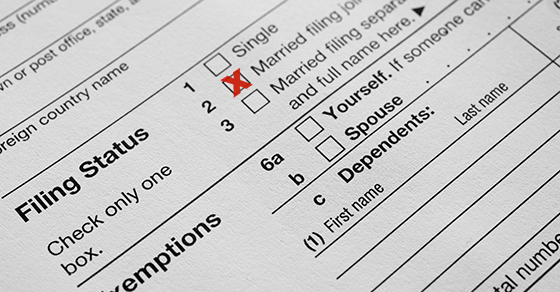Filing jointly or separately as a married couple: What’s the difference?
When you file your tax return, a tax filing status must be chosen. This status is used to determine your standard deduction, tax rates, eligibility for certain tax breaks and your correct tax. The five filing statuses are: Single Married filing jointly, Married filing separately, Head of household, and Qualifying surviving spouse. If you’re married, […]
Filing jointly or separately as a married couple: What’s the difference? Read More »




